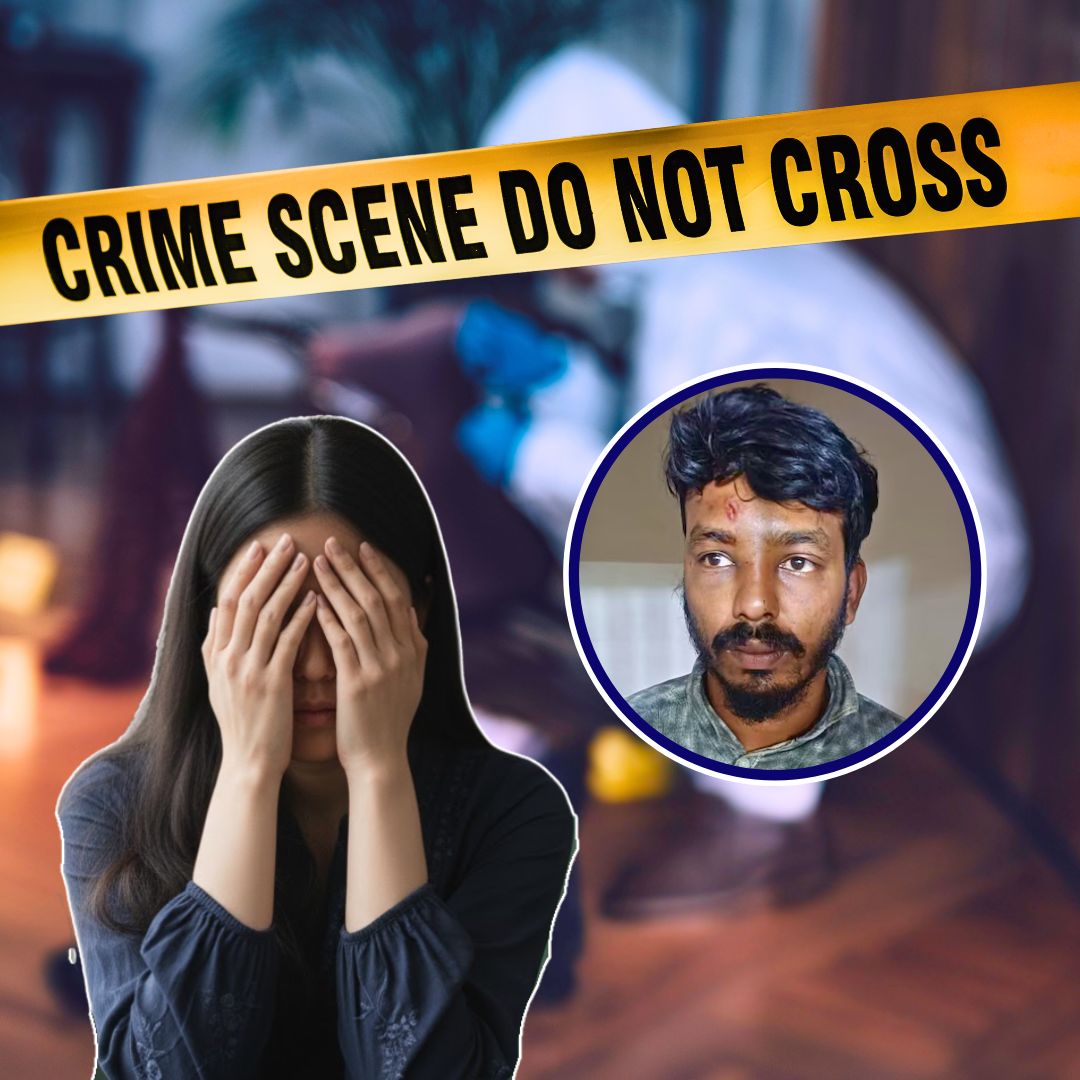A man named Vignesh allegedly attempted to sexually assault a specially-abled woman in Bengaluru’s MR Nagar area on November 9, 2025.
The victim, who cannot speak or walk properly and has the developmental capacity of a child, was home alone while her family attended a wedding.
The accused, reportedly under the influence of marijuana, broke into the house by forcing the door latch and locked the door from inside.
The incident was interrupted when the victim’s mother returned, found the door bolted, forced it open, and discovered her daughter in distress along with the accused hiding near the door.
Locals immediately responded to the raised alarm, caught the accused, and handed him over to the police. The Adugodi Police have registered a case under Section 75 of the Bharatiya Nyaya Sanhita concerning sexual harassment and are investigating the matter further.
Immediate Intervention and Police Response
The accused, identified as Vignesh alias Dadu, was subjected to a public thrashing by neighbours before being taken into custody. Local residents, alarmed by the cries of the victim, acted swiftly to prevent the assault from being completed.
A police official confirmed the apprehension and praised the vigilance of the local community, noting that the victim is now under medical care and receiving support from her family and social services.
The police are collecting evidence and statements to build a comprehensive case that ensures justice will be served.
The accused remains in police custody as the investigation progresses, with authorities emphasizing the importance of community cooperation in safeguarding vulnerable individuals.
Broader Context: Safety of Vulnerable Individuals in Karnataka
This assault is part of a disturbing trend of increasing crimes targeting vulnerable populations, including persons with disabilities, across Karnataka. Similar incidents have recently been reported from districts such as Hassan and Raichur, where women and minors with disabilities were victimised.
Advocates and activists have demanded more robust safety protocols, better policing, and enhanced surveillance mechanisms to protect such at-risk communities. The public outcry calls for legislative and institutional reforms, as well as greater awareness and empathy towards safeguard measures to prevent recurrence of these crimes.
This case highlights systemic gaps in safeguarding especially disabled persons’ dignity and physical safety and urges urgent remedial actions by the government and civil society.
Judicial Developments and Government Actions
In recent years, the judiciary in Karnataka and at the national level has made significant rulings reinforcing the rights of persons with disabilities.
The High Court of Karnataka, in May 2025, emphasized that assessment of suitability for employment should be based on functional abilities rather than solely medical certificates, advocating for a more inclusive approach.
The Supreme Court has also reaffirmed that the principle of reasonable accommodation is central to ensuring equality, ruling against policies that exclude disabled persons from judicial or public service merely on the basis of disability.
Moreover, the government has established the Office of the Chief Commissioner for Persons with Disabilities to safeguard rights and ensure compliance with accessibility standards. Still, critics argue that these legal frameworks require rigorous enforcement and proactive implementation to translate into real safety and dignity for disabled citizens at the ground level.
The Logical Indian’s Perspective
The attempted assault against a specially-abled woman is a tragic reminder of society’s obligation to protect its most vulnerable members. While the immediate rescue by neighbours demonstrates the power of community vigilance, it also exposes the need for systemic safeguards that go beyond reactive measures.
The Logical Indian advocates for comprehensive, inclusive safety frameworks that encompass legal reforms, public awareness, and continuous community engagement.
Empathy and respect for dignity must underpin all policies and social practices that aim to create secure environments for persons with disabilities.











